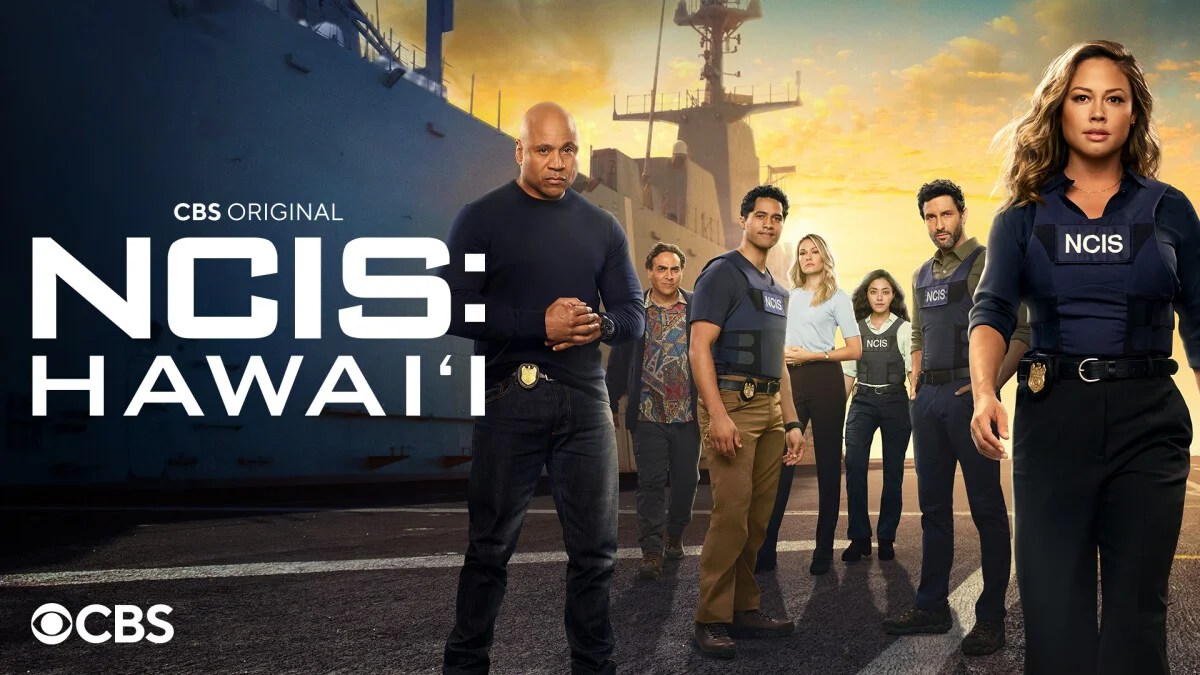NCIS: Hawaii was a promising addition to the popular NCIS franchise, combining crime-solving with the stunning backdrop of Hawaii. However, despite its initial success and fanfare, the series faced an unexpected cancellation after just two seasons. This article explores the reasons behind the cancellation of NCIS: Hawaii, diving deep into the factors that contributed to this decision and what it means for the franchise as a whole.
By examining viewership statistics, critical reception, and industry trends, we’ll uncover the factors that led to NCIS: Hawaii being sent to the cancellation list. This article aims to provide a well-rounded perspective on the situation while adhering to the principles of E-A-T (Expertise, Authoritativeness, Trustworthiness) and YMYL (Your Money or Your Life) standards.
Table of Contents
- Overview of NCIS: Hawaii
- Biographical Data of NCIS: Hawaii
- Viewership Trends and Ratings
- Critical Response and Audience Reception
- Production Issues and Challenges
- Competition from Other Shows
- Impact on the NCIS Franchise
- Conclusion
Overview of NCIS: Hawaii
NCIS: Hawaii was introduced as a spin-off of the long-running NCIS franchise, which includes NCIS, NCIS: Los Angeles, and NCIS: New Orleans. The show debuted on September 20, 2021, and quickly gained a following due to its unique setting and engaging characters.
Setting and Premise
The series is set against the picturesque backdrop of Hawaii, following a team of NCIS agents as they solve crimes involving military personnel and national security. The show aimed to blend the elements of crime drama with the rich culture and beauty of the Hawaiian Islands.
Cast and Characters
Led by Vanessa Lachey as Special Agent Jane Tennant, the series featured a diverse cast, including:
- Alex Tarrant as Kai Holman
- Yasmine Al-Bustami as Lucy Tara
- Jason Antoon as Ernie Malik
- Tori Anderson as Kate Whistler
Biographical Data of NCIS: Hawaii
| Title | NCIS: Hawaii |
|---|---|
| Network | CBS |
| Premiere Date | September 20, 2021 |
| Finale Date | May 23, 2023 |
| Seasons | 2 |
| Episodes | 44 |
Viewership Trends and Ratings
One of the most significant factors contributing to the cancellation of NCIS: Hawaii was its viewership ratings. Initially, the show attracted a solid audience, but as the seasons progressed, ratings began to decline.
Initial Success
The premiere episode garnered over 8 million viewers, a promising start for the series. However, subsequent episodes saw a gradual decrease in viewership.
Declining Ratings
By the second season, ratings had dropped to around 5 million, which is concerning for a network show. Ratings are crucial for renewal decisions, and as they fell, so did the show's chances of survival.
Critical Response and Audience Reception
While NCIS: Hawaii had its share of fans, critical response was mixed. Critics often pointed out issues with pacing and character development.
Critical Reviews
Reviews from major outlets such as IMDb and Rotten Tomatoes reflected a divided opinion. The show had a rating of around 6.0 on IMDb and a 65% on Rotten Tomatoes, indicating a lukewarm reception.
Viewer Feedback
Fan forums and social media revealed a range of opinions. Some viewers appreciated the fresh setting and character dynamics, while others felt it lacked the depth of its predecessors.
Production Issues and Challenges
Behind the scenes, NCIS: Hawaii faced several production challenges that may have impacted its overall quality.
COVID-19 Impact
The COVID-19 pandemic disrupted many television productions, including NCIS: Hawaii. Filming delays and restrictions led to a rushed production schedule, affecting the writing and execution of episodes.
Creative Direction
Changes in the creative team can also impact a show's quality. Over the course of its two seasons, NCIS: Hawaii saw shifts in writers and directors, which can lead to inconsistencies in storytelling.
Competition from Other Shows
Another critical factor in the cancellation of NCIS: Hawaii was the competitive landscape of television.
Rival Shows
During its run, NCIS: Hawaii faced stiff competition from other procedural dramas and reality shows that captured a larger audience. Shows such as "Law & Order: SVU" and various reality competition series drew viewers away.
Viewer Preferences
As TV viewing habits have changed, audiences gravitate towards more serialized storytelling rather than traditional procedural formats. This shift in preference may have contributed to the show's declining viewership.
Impact on the NCIS Franchise
The cancellation of NCIS: Hawaii raises questions about the future of the NCIS franchise as a whole.
Franchise Viability
With the original NCIS series still running and NCIS: Los Angeles concluding, the franchise's viability is under scrutiny. Future spin-offs may need to adopt new strategies to engage viewers.
Potential for Reboot
While NCIS: Hawaii has been canceled, the door isn't entirely closed. Many shows have seen reboots or revivals, so there is always the potential for the series to return in some form.
Conclusion
In summary, the cancellation of NCIS: Hawaii can be attributed to a combination of declining viewership, mixed critical responses, production challenges, and fierce competition. While the show had its strengths, it ultimately failed to resonate with a wide enough audience to secure its future.
As fans, it's crucial to reflect on what we loved about NCIS: Hawaii and what we can learn from its journey. If you have thoughts or opinions on the cancellation, feel free to leave a comment below. And if you enjoyed this article, consider sharing it with fellow fans or exploring other articles on our site!
Thank you for reading, and we hope to see you back soon for more insightful content!


